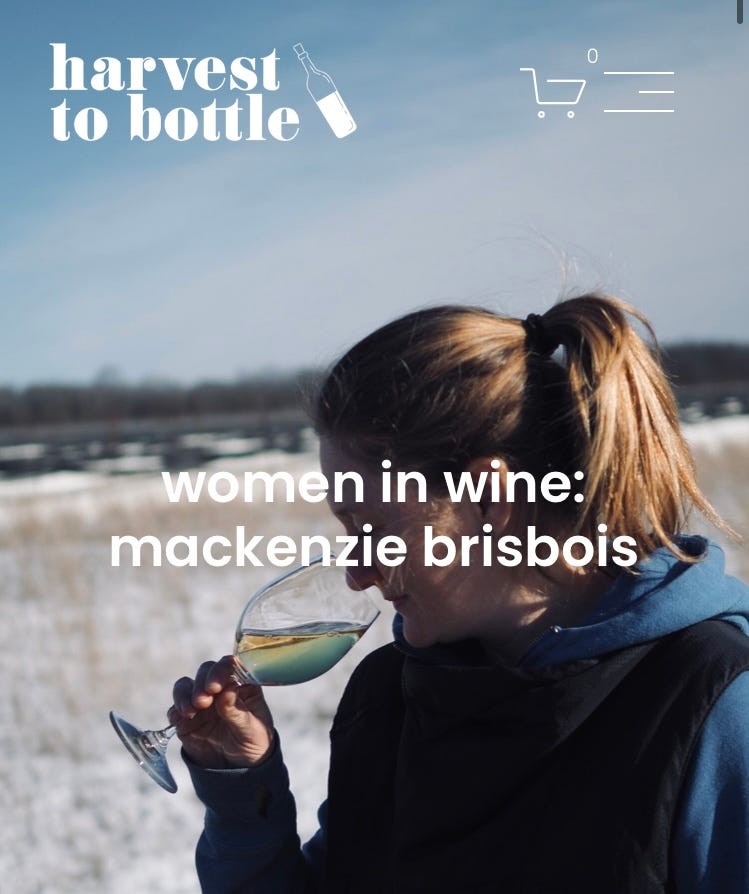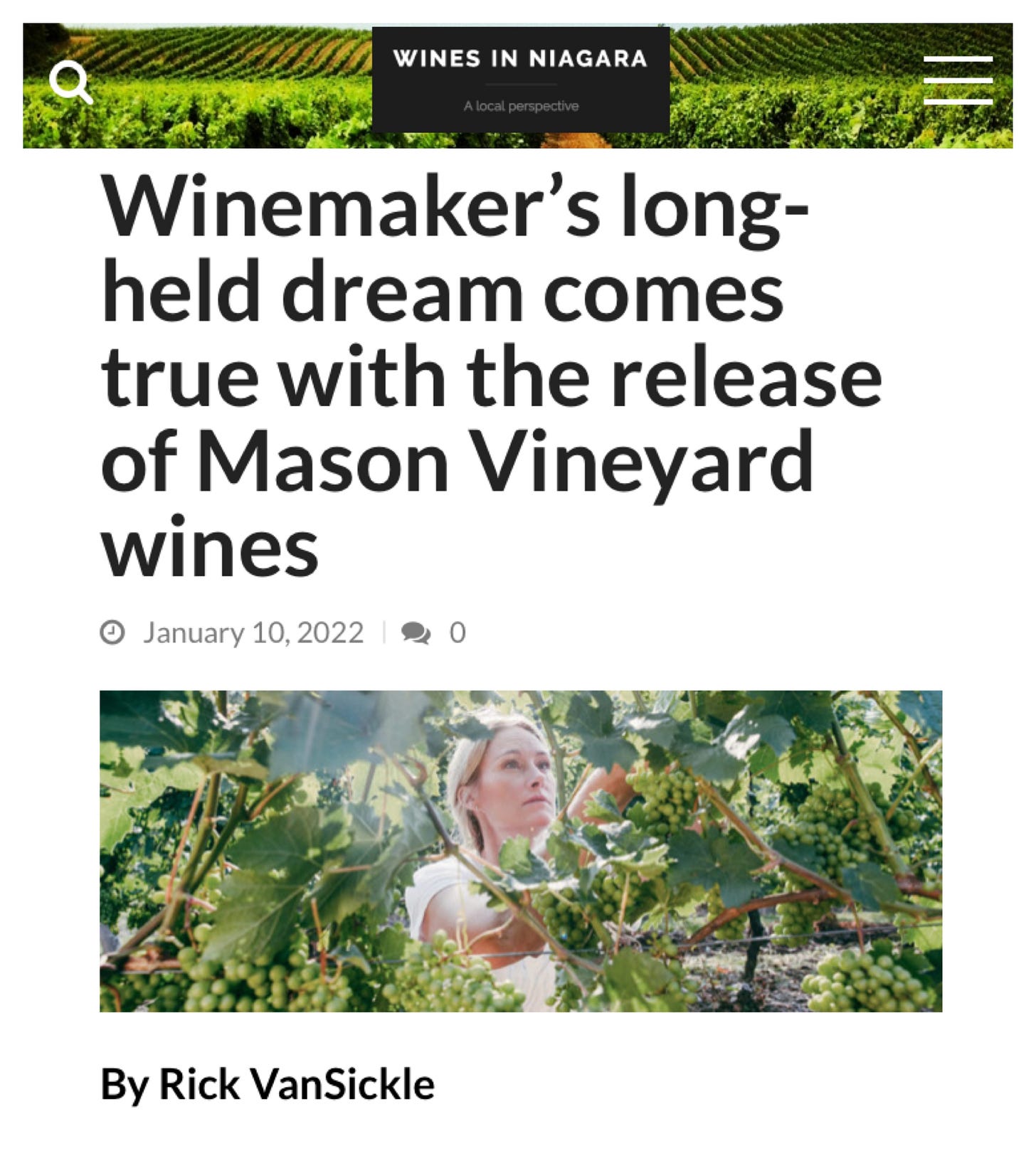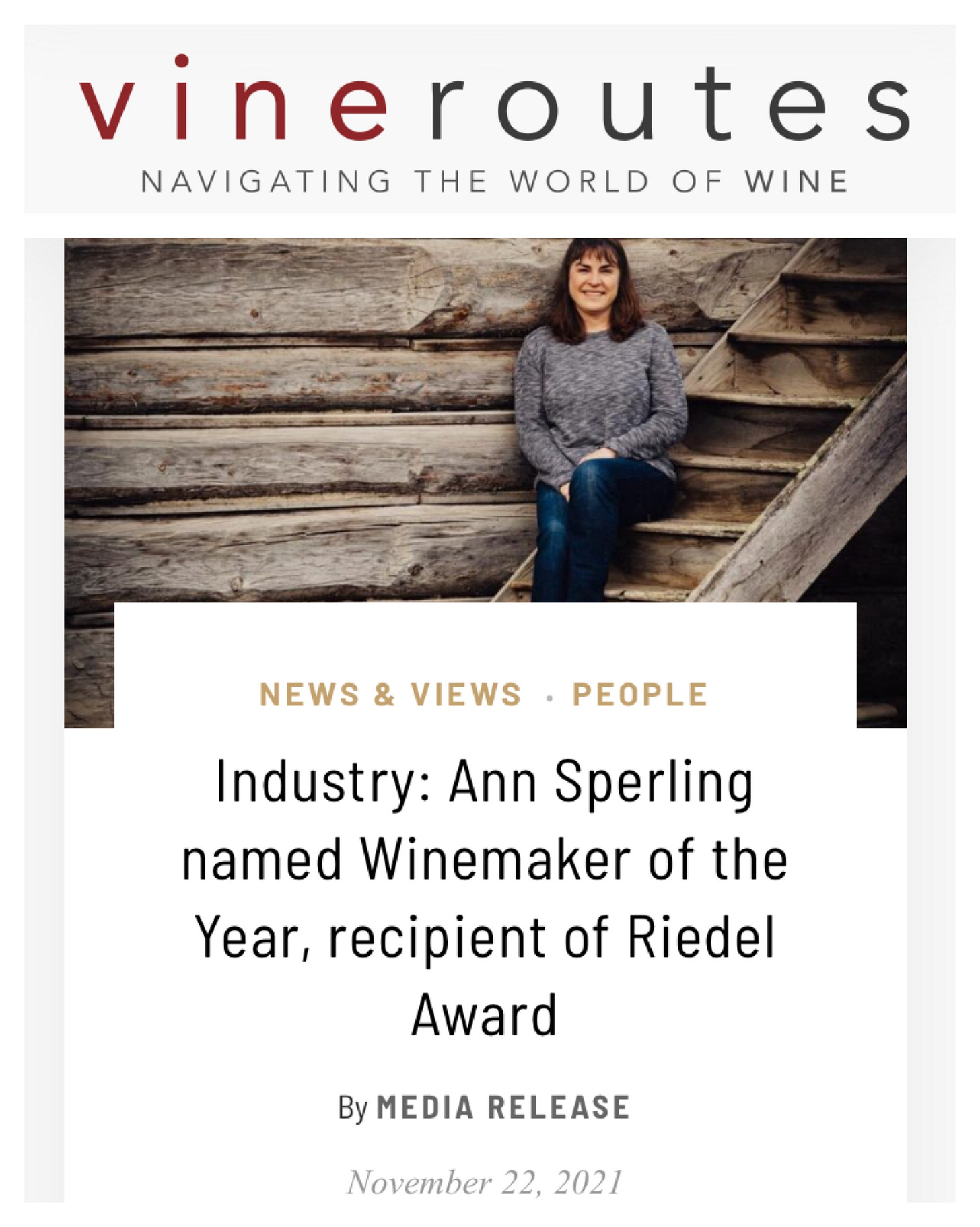Women in Wine
On International Women’s Day last year, Jancis Robinson wrote “I think we can all agree that women are slowly assuming more prominence in the wine world.”
And while women like Isabelle Legeron, Julia Coney, Alice Feiring, Jenny Lefcourt, and Camille Fourmont, to name a few, represent some of the different roles occupied in the wine industry — buyers, sommeliers, educators, writers, importers, hospitality — it’s difficult to quantify representation.
I was curious to know more about the representation of women in the role of winemaker, but couldn’t find a lot of info. The most recent data is from The Golden State, where 14% of California's 4,200+ bonded wineries have a woman as their lead winemaker; and Kate Burns recently wrote about 5 Pioneering Women Who Are Altering the California Winemaking Industry.
Since I couldn’t find Ontario stats, I did some math. Using Wine Country Ontario and VQA Ontario winery listings, and winery websites and Google, I found that 32 out of 176, or almost one-fifth, of Ontario VQA wineries have a female head winemaker, and this issue features a few of them.
Mackenzie Brisbois is the winemaker at Trail Estate, a minimalist small-batch winery in Prince Edward County.
Brisbois has been referred to as the John Coltrane of winemaking, as she is “a disruptor of rules and exploring the outer edges of normalcy,” with her minimal intervention winemaking. A key factor in Brisbois’ process is wild fermentation (wine is made when grapes are fermented ie. when yeast eats the sugar to create alcohol, by either using the wild yeast that is naturally occurring on the grape, or using selected commercial yeast):
The idea of selecting yeast has never appealed to me. It makes me feel like I am painting by numbers. While the end product can be beautiful, it lacks the beauty of imperfection. Great wines are not simple — the aromatics are complex, changing and opening with time, while the palate is layered, flavours are plentiful and finish long.
When harvest to bottle asked Brisbois why women are underrepresented in wine and what needs to change, she said:
Women just haven't been given the voice and the credit that is due. There have been so many women silenced for standing up for themselves. We need to advocate for ourselves. But above all the industry needs to offer more of a level playing field to not only women, but to anyone who has been marginalized.
Brisbois completed the Winery and Viticulture Technician program at Niagara College, and worked at wineries in Ontario, British Columbia, New Zealand, and South Africa, before returning to the County, where she grew up.
Kelly Mason is the winemaker for Domaine Queylus, Honsberger Estate Winery, The Farm; and most recently, Mason Vineyard, her namesake winery on the Twenty Mile Bench, where Mason makes low yield, small batch, minimal intervention Pinot Noir, Chardonnay, and Cabernet Franc.
According to Carolyn Evans Hammond's This Niagara winemaker makes bottles with a cult following, Mason earned an MBA from the Schulich School of Business, and a viticultural degree from Brock University. She first interned at Saintsbury in Napa, and then in Ontario at Tawse and Le Clos Jordanne. Mason joined Domaine Queylus in 2013, becoming Head Winemaker in 2018.
In Wines In Niagara’s Winemaker’s long-held dream comes true with the release of Mason Vineyard wines, Rick VanSickle writes that Mason is “in a class that’s shared by few as the winemaker, grower, winery owner, brand developer — and a woman — in a world, sadly, that sees far too few at the top echelons of the wine industry.”
Ann Sperling is the winemaker for both Ontario's Southbrook Vineyards — Canada’s first certified organic and biodynamic winery — and Sperling Vineyards in British Columbia.
Sperling was raised on a family vineyard in Kelowna, completed her Food Sciences degree at UBC, and entered the wine industry full-time in 1984. She knew she was going to be a winemaker at age 15, according to eatnorth’s Recognizing women pioneers of the Canadian wine industry, who also wrote that Sperling is “considered the foremost authority on Biodynamic winemaking in Canada and a strong role model for so many other women.”
In response to being named 2021 Winemaker of the Year by the Cambridge Food & Wine Society, Sperling said:
In our relentless pursuit of great winemaking, we have learned the high value and relevance of organic and biodynamic viticulture, and this has instilled in us a deep respect for the soil, water and ecosystems upon which great wine, and our planet, relies.
Southbrook’s 2020 Triomphe Orange is a great introduction into the category that Sperling helped create — she spearheaded the regulated production of skin-fermented wine in Ontario — and this organic, unfiltered Vidal and Chardonnay Musqué blend, with no added sulphites, looks and tastes like summer in a glass.






